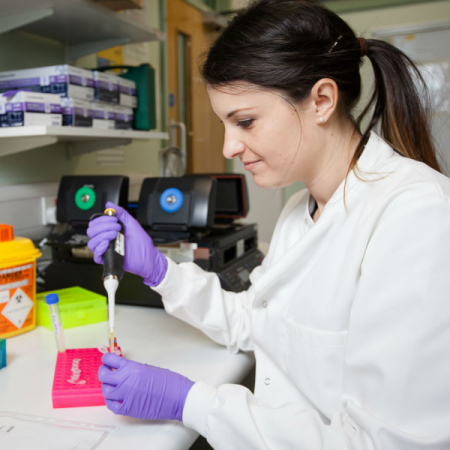Description
During this course, you will explore how established health economic methods, especially economic evaluation, can predict the costs of new treatments and the potential benefits to patients, the NHS and the wider economy.
Learn from leading experts in genomics about:
- The significance of economic models in genomic medicine.
- Economic models and their effect on public health.
- Economic evaluation and analysing results.
- Decision-making and impact of genomics on healthcare systems.
Learning outcomes
By the end of this module the student should understand the importance of health economic approaches in genomic medicine and be able to:
- Critically evaluate the different types of economic evaluation used in genomic medicine.
- Explain how to collect health outcomes, non-health outcomes and cost data for an economic evaluation in genomic medicine.
- Interpret the results of an economic evaluation in genomic medicine.
- Describe how to carry out a budget impact analysis in genomic medicine.
- Discuss how healthcare leaders use health economic evidence when deciding how to prioritise interventions in genomic medicine.
Funding rules
The Genomics Education Programme offers funding on a modular basis, initially covering 1-4 modules, with the potential for additional funding for the full Master’s degree upon demonstrating satisfactory progress. The maximum amount of funding available to each student is the equivalent of 12 modules (180 credits), to cover the full Master’s degree.
Funding covers course fees only and is limited to NHS healthcare professionals working in England on a permanent contract from the full range of professional backgrounds and groups (such as medicine, nursing, healthcare scientists and technologists). Please note funding can only be allocated to those who are post registration professionals.
University entry requirements may include criteria around existing understanding and minimum English language requirements.
The Genomics Education Programme provides limited funding to the Universities listed below. Please check with your preferred university to obtain details of the programme modules and entry criteria.
More information about the application process for CPPD module(s)/PGCert or PGDip/Master’s applications is available on this webpage.












